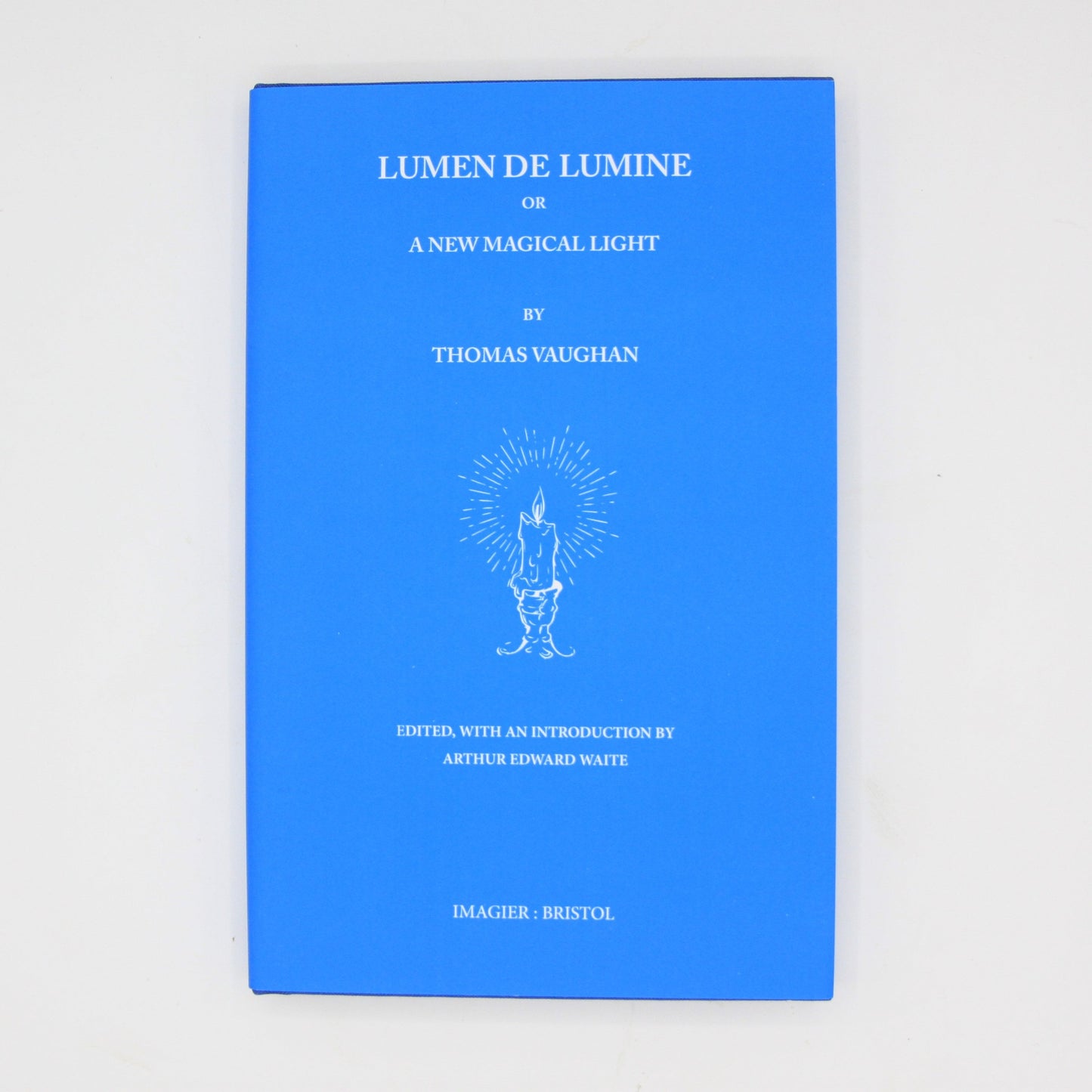My Store
LUMEN DE LUMINE (H/B) by Thomas Vaughan, Edited by A.E. Waite.
LUMEN DE LUMINE (H/B) by Thomas Vaughan, Edited by A.E. Waite.
Couldn't load pickup availability
Publisher, Imagier Publishing, Bristol, 2021. (new Book)
Hardback, with Dust-Jacket, bound in blue book-cloth with gilt lettering to spine and front cover, pp. 129 + 2 b/w illustrations
Waite writes in the introduction to this Lumen de Lumine, a marvellous book on Alchemical Symbolism, "The tract is offered by its title as a new magical light communicated to the world: let us see therefore what he has to say about Magic. Well, those who understood it of old divided it into three parts—elemental or physical, celestial or astrological, and spiritual . . . According to Vaughan, the three divisions which I have cited are intermarried, and it is indispensable that they should so be for the accomplishment of any great work. This, however, is when they are comprehended at their height, for normally they are now dismembered. Once they were united in a single natural subject; but man separated them, with the result that they became dead and ineffectual . . ."
Furthermore, "as there is no importance, or indeed any special interest, in the writings of Thomas Vaughan from a standpoint of textual scholarship, and as the present reprint of Lumen de Lumine is designed for students of mystical philosophy, I have thought it desirable to modernise and to punctuate the text in accordance with modern methods." Like many other works of its period, I conceive the texts of Thomas Vaughan are strong enough to stand by themselves and I shall add that Lumen de Lumine in its first edition is exceedingly rare.
We can say at once that Lumen de Lumine, in a stricter understanding of their respective terms, is a discourse on Alchemical Symbolism rather than a magical discourse, and out of this arises the question whether his alchemical symbolism is after all or not that of the mines, or whether it is of the holy spirit of man. In his day he tells us there was one section of a perverse generation which commonly called themselves chemists, and these abused the great mystery of nature by applying there to the name of Lapis Chemicus, whereas the golden silver of the philosophers are of the soul and spirit, while the common metals of alchemy, are in no eyes adaptable to the purpose of the adept.
Share

